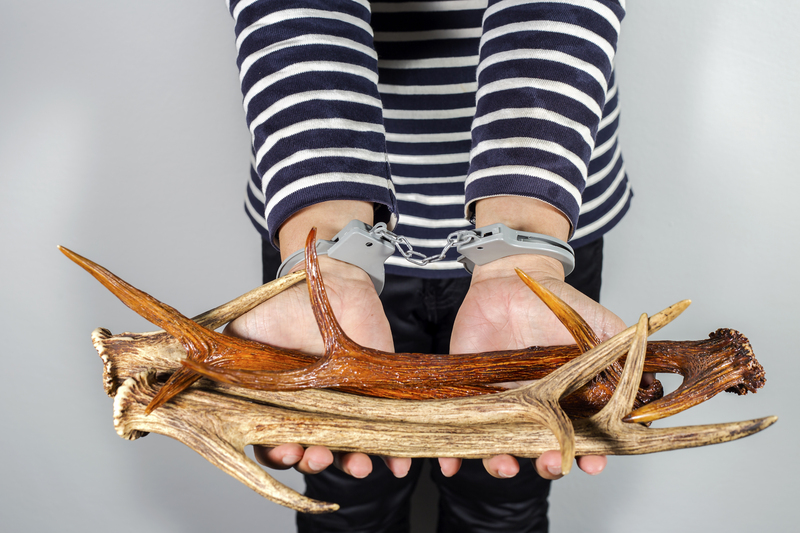How to Get Rid of Bulky Waste Items Without Breaking the Bank
Are you wondering how to get rid of bulky waste items without breaking the bank? Whether you're decluttering your home, moving, or replacing old furniture and appliances, disposing of large items can be challenging--especially if you're on a tight budget. Fortunately, there are numerous practical, eco-friendly, and cost-effective methods for bulky waste disposal that don't require spending a fortune.
Understanding Bulky Waste: What Qualifies?
Before you start looking for affordable ways to discard your large items, it's important to understand what bulky waste refers to. Typically, this includes:
- Old furniture (sofas, mattresses, wardrobes, tables, and chairs)
- Large appliances (fridges, washing machines, dryers)
- Mattresses and box springs
- Carpets and rugs
- Lawn equipment and bicycles
- Other oversized household belongings
Municipalities often have different rules for these items compared to regular waste, so understanding the classification helps you explore suitable options.

Why Bulky Waste Disposal Can Be Expensive
Most local garbage collection services set strict limits on the size, weight, or quantity of items you can leave for pickup. Many cities require residents to pay additional fees for bulky item collection, or they offer limited free pickups per year. Private junk removal companies can charge high rates for bulk loads, especially for heavy or awkwardly shaped items. If you prioritize sustainability, landfills might not be your top choice--particularly as dumping charges can add up.
Key Considerations Before Disposal
- Accessibility: Can you move the items yourself, or do you need help?
- Condition: Are your items still usable, or only suitable for recycling or disposal?
- Type of Material: Some items (like electronics or hazardous waste) require special handling.
- Local Regulations: Always check your city's rules to avoid fines or improper disposal.
Affordable Ways to Get Rid of Bulky Waste Items
1. Take Advantage of Free Municipal Bulk Pickup Days
Many municipalities offer bulk waste collection on certain days of the month or year. Some programs allow residents to set out items like furniture or appliances at the curb for free or for a nominal fee.
- Check your city or county website for schedules and allowable items.
- Book your pickup early, as slots may fill quickly.
- Sort your waste according to the guidelines--items not accepted will be left behind.
Tip: Some towns allow only a limited number of free pickups per year, so plan accordingly.
2. Drop Off at Recycling Centers
Local recycling centers or public waste facilities can be an affordable solution for bulky item disposal. Most accept large items like refrigerators, mattresses, and furniture--often for a much lower fee than private junk removal services.
- Find your nearest center and check the accepted items list.
- Some centers offer free drop-off for certain materials, like scrap metal or electronics.
- Many facilities recycle parts of furniture and appliances, reducing landfill waste.
Pro Tip: If you organize a carpool or split transportation costs with neighbors, dropping off multiple items becomes even cheaper!
3. Donate to Charities or Nonprofits
If your bulky waste items are still in good, usable condition, consider donating them. Many non-profit organizations and charities will pick up heavy furniture, appliances, and other items for free--saving you money and benefiting the community.
- Contact local charities such as Goodwill, Habitat for Humanity, Salvation Army, or furniture banks.
- Some organizations accept only certain types of items; always check beforehand.
- Tax deduction: Donating can provide a tax benefit. Request a receipt for your donation.
Bonus: Donating is both cost-effective and environmentally responsible.
4. List Items Online for Free Pickup or Sale
Websites and apps make it easier than ever to give away or sell bulky items without hassle. Many people look for free furniture, appliances, or fixtures, so you may not only save on disposal fees but also make a little cash.
- Post on platforms like Craigslist, Facebook Marketplace, Freecycle, Nextdoor, OfferUp, or Letgo.
- Be honest about the item's condition and any defects.
- For free items, specify "curb alert" and leave the item outside for contactless pickup.
- Always prioritize safety--meet in public places when possible or arrange porch pickup.
Tip: Take clear, well-lit photos to increase the chances of someone taking your unwanted bulky waste.
5. Organize a Neighborhood Clean-Out or Swap
Coordinate with neighbors for a bulk waste removal event. Pool resources to rent a dumpster or arrange group pickups. Doing it together can lower costs and foster a sense of community.
- Set a date and invite neighbors to participate in a "block clean-up."
- Share costs for a scheduled pickup or a shared dumpster.
- Host a swap event before disposal; one person's unwanted furniture could be another's treasure!
Creative and Eco-Friendly Ideas for Bulky Item Disposal
6. Upcycle or Repurpose Your Bulky Items
Before tossing your bulky waste, consider upcycling. With some creativity, old furniture or appliances can gain new life.
- Turn an old dresser into a TV stand or garden planter.
- Repurpose wooden pallets into outdoor furniture.
- Use parts! Reuse doors as tables, or salvage hardware for DIY projects.
Hint: Upcycling reduces landfill waste and can even save money on new purchases.
7. Hire Emerging "Gig Economy" Helpers
If you are unable to move items yourself, consider hiring help through gig apps (such as TaskRabbit or Thumbtack). Local helpers may be more affordable than traditional junk haulers, especially if you have only a few items.
- Compare rates and select verified local providers.
- Negotiate the price by grouping several items at once.
- Helper might be able to take items as "payment" (particularly scrap or re-useable goods).
8. Contact Scrap Metal Collectors
Many bulky waste items--such as old appliances, bed frames, or exercise equipment--contain valuable metal. Scrap metal recycling collectors may haul away these items for free, as they can profit from recycling.
- Look up local scrap metal dealers or collectors online.
- Some companies even pay for metal-heavy objects (like washers or dryers).
- Break down the item if possible to make collection easier and avoid additional charges.
9. Partner with Local Businesses
Sometimes, local moving, remodeling, or cleaning businesses accept large unwanted items for a small fee--often less than a national junk removal service.
- Contact small local movers, thrifting stores, or waste haulers for a quote.
- They may also know scheduled community drop-off or event days.
Cautions: What NOT to Do When Disposing of Bulky Waste
Improper bulky item removal can result in fines, environmental harm, or even safety hazards. Be aware of these mistakes:
- Don't dump illegally: Never abandon items on the street, in alleys, or vacant lots.
- No hazardous waste: Don't mix electronics, chemicals, or certain mattresses with regular bulk trash. Follow your municipality's hazardous waste guidelines.
- Don't ignore recycling: Disposing of recyclable materials in a landfill is environmentally and often financially wasteful.
- Don't assume anything goes: Check your city's bulk waste regulations on sizes, amounts, and accepted items before leaving them at the curb.
How to Prepare Bulky Waste for Safe & Cost-Effective Removal
- Disassemble items when possible--this makes them easier to move and may reduce fees.
- Remove hazardous parts, such as batteries or refrigerant in appliances.
- Wrap sharp edges for safety if leaving at curb or transporting yourself.
- Label items (e.g., "scrap metal" or "working appliance") for clarity.
The Environmental Impact of Bulky Waste
Bulky waste items, when not handled responsibly, contribute disproportionately to landfill volume and environmental degradation. Every landfill-bound mattress or appliance contains materials that can often be recycled or reused. By seeking alternative disposal methods, you:
- Reduce landfill waste
- Support local charity and reuse initiatives
- Conserve resources by recycling valuable metals, foam, wood, and textiles
- Cut greenhouse gas emissions
Always consider donation, recycling, or upcycling before resorting to landfill disposal.
Quick Checklist: Steps to Remove Large Household Items Affordably
- Evaluate the item's condition: Can it be donated or sold?
- Research local bulk pickup programs for free or discounted disposal days.
- Check with recycling centers or scrap yards for drop-off options.
- Post your item on online platforms for free pickup or sale.
- Organize a group effort with neighbors to share costs.
- Consider creative reuse projects in your own home.
- If all else fails, hire help via affordable gig economy apps.

Frequently Asked Questions (FAQs)
Is there a free way to get rid of bulky items?
Yes! Many cities offer free bulk pickup days, and you can also give away usable items through donation or online "free" listings.
What should I do if my city charges high fees for bulky waste?
Explore alternatives such as private recycling centers, scrap dealers, donations, or cooperative neighborhood disposals to minimize costs.
Can I recycle broken furniture or appliances?
Often, yes. Many recycling centers separate useful materials--metal, wood, foam--for responsible processing.
What about hazardous bulky waste?
Appliances (like refrigerators or ACs), electronics, and items containing hazardous materials require special disposal by law--consult your local waste authority for guidance.
Conclusion: Smart & Low-Cost Bulky Waste Management
Getting rid of bulky waste items without breaking the bank is entirely possible with a little research and creativity. From municipal programs to community events, recycling options, and online platforms, you have a wide range of affordable, responsible solutions. The best approach is to reduce, reuse, donate, & recycle wherever possible, turning unwanted items into opportunities for someone else--and ensuring a lighter footprint for our planet.
Remember: Responsible bulky waste disposal saves you money and safeguards the environment. Next time you face a pile of large household clutter, use these tips for a wallet- and earth-friendly approach!
